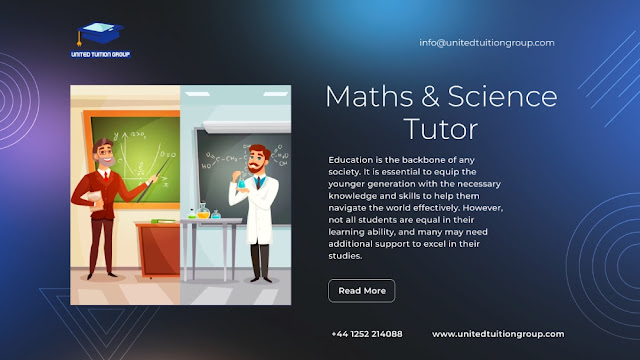UTG UK Qualified GCSE English Tutor Role And Qualification?
In general, to become a GCSE-qualified English teacher, you must have the following qualifications and skills:
Degree in English or a related field: Most GCSE English teachers have a degree in English literature, language, or creative writing. Some may even have a postgraduate diploma in education.
Teaching Experience: GCSE English tutors should have experience teaching English at the secondary level or teaching English language and literature to students.
Knowledge of the GCSE English syllabus: A qualified GCSE English teacher should have a thorough understanding of the GCSE English syllabus, including examination structure, assessment criteria, and critical topics.
Communication Skills: Effective communication is vital for a GCSE English tutor. You must be able to explain complex ideas and concepts clearly and concisely.
Patience and Empathy: GCSE English can be difficult for some students. A good tutor must therefore be patient and empathetic and be able to adapt their teaching style to the individual needs of the students.
When looking for a qualified GCSE English teacher, reviewing their qualifications, experience, and teaching style is essential. Many tutors offer trial lessons or initial consultations, an excellent way to assess their suitability before proceeding with the task.
Importance Of GCSE ENGLISH Subject And GCSE English Tutor:
GCSE English is an exciting subject. It is one of the most critical subjects in the GCSE curriculum, laying the foundation for communication skills, critical thinking and cultural understanding. English is a compulsory core subject in almost all higher education and career paths. It is important for developing reading and analytical skills, essential in many professions such as law, journalism, teaching, and marketing. In addition, GCSE English Tutor teaches students to analyze literature and media critically, which is essential to develop their ability to understand and interact with the world around them. English literature also offers invaluable insights into cultural, social, and historical perspectives that students may not otherwise encounter. In summary, GCSE English is an important subject that provides students with fundamental communication and analytical skills. It is not an underestimated subject, but essential for academic and professional success.
Method Of Study For GCSE English At United Tuition Group:
Many resources are available to GCSE English students, including course books, study guides, online resources and assessment materials. Here are some examples of the most commonly used resources:
Textbooks: Many GCSE textbooks in English are available, covering the exam syllabus and containing practice and sample questions. Famous publishers of GCSE English textbooks include Oxford University Press, Pearson and Cambridge University Press.
Study Guides: The GCSE English Study Guides are designed to help students review key syllabus topics and concepts. They often include summaries, exam tips, and practice questions. Some famous English language GCSE guides include the CGP Revision Guides, Letts Revision Guides, and Collins Revision Guides.
Online Resources: Many online resources are available for GCSE English, including websites, videos, podcasts and online courses. The BBC Bitesize website is a popular resource that provides free aids and practices for GCSE English learners. Other helpful online resources include The Student Room, Sparknotes, and Exam Ninja.
Review material: English GCSE revision cloth consists of index playing cards, overview playing cards and posters. Furthermore, these materials help students remember key concepts, vocabulary, and literary resources. Popular review media are CGP review boards, Letts review boards, and Collins review boards.
Past Papers: Past Papers provide students with an opportunity to practice exam techniques and become familiar with the format of the exam. Previous work is available on the websites of the examination boards that offer GCSE English, including AQA, Edexcel and OCR.
In summary, many resources are available for GCSE English learners, and you must find the right resources. Using a combination of textbooks, guides, online resources, review material, and previous work can help you prepare effectively for your GCSE English exam.

.jpeg)



Comments
Post a Comment